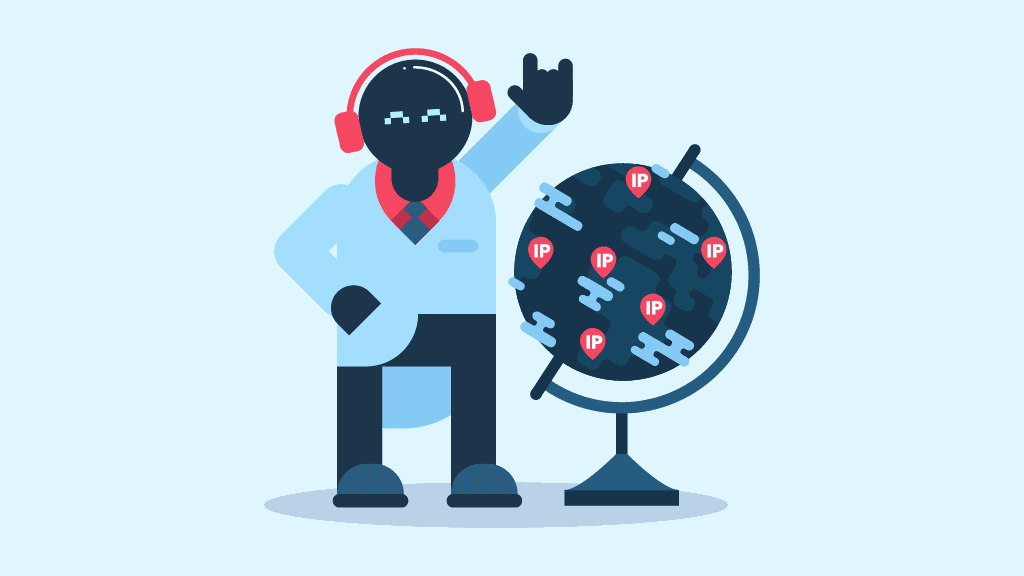Top 5 Web Scraping Applications [VIDEO]
The internet is more than just the information superhighway. It’s also a vast ocean of all sorts of data. Regardless of your industry and needs, this ocean is full of details that can help you gain an advantage over competitors or dig out some helpful info.
Market research, lead generation, keyword analysis, business insights – it all sounds nice, but how can you actually use them for your needs? To answer that, we’ve collected the best-performing data scraping applications into one place.
First things first – what is web scraping?
Let’s first define web scraping as an automated process of collecting publicly available data. People need such info for various reasons – be it marketing, e-commerce, or just researching. Yet, in the end, it’s all about using automation for your needs.
You can get that public data without any scraper. But come on, do you really want to lurk in muddy waters trying to extract data from all over the internet manually? And, even if you’re okay with manual work, keeping the collected data up to date would simply be mission impossible.
So you’ll need a scraping tool if you want to be ahead of others in this competitive world. You can build a scraper yourself using programming libraries – pretty high tech, but doable. Alternatively, you can use pre-made tool - SERP API or Web Scraping API.
The top 5 web scraping use cases presented in the next section will successfully work with whichever scraping method you choose. Everything depends not on the tool but your aims and the scope of your project.
Top 5 web scraping applications
#1 – Business

Although it’s relatively easy to get into any market, it’s tough to stay in one. Competition between businesses is exhausting, and it doesn’t matter whether you’re an old soul in the business world or a hustling startup. However, everything isn’t such doom and gloom when you know how to scrape the web!
Price monitoring & competitor analysis
It’s tricky to set a price that’ll significantly increase your profit and keep all your customers happy at the same time. Yet, customers are willing to pay more if a product provides more value than other similar products on the market.
So you can scrape the web to collect data about your customers’ demands and needs. Besides, check what other businesses are missing and what they excel at. You’ll then be able to improve your product and make exclusive offers.
For example, did you know that a couple of years back, ZARA collected data about their customers’ changing demands by scraping the web? This helped them to quickly understand upcoming fashion trends, adapt, and leave their competitors in retail behind.
Brand reputation
You can use web scraping to check whether your business is getting a good rep. Set your scraper to gather what people are saying about your company on relevant websites. This way, you’ll be able to find out about any negativity towards your brand.
Additionally, web scraping can help you quickly check your new business partner’s or employee’s trustworthiness. You can scrape resume discrepancies, reputation ratings, and recommendations. Better safe than sorry!
A handy tip – when setting up your scraper, always include more than one spelling variation of your company’s name. More than half of the global population access the internet on their phone, and it’s hard to spell every word correctly with that tiny keyboard of a smartphone.
SEO improvements
Web scraping can be a great asset when conducting SEO analysis and tracking the keywords that drive that precious traffic to your website. You can also find the keywords that your competitors use to rank high on Google. For example, search high-volume keywords on Google to identify which websites rank on the first page with them. Then, scrape those websites to find what SEO techniques they use.
For this task, use SERP Scraping API, our full-stack scraping API that guarantees 100% success in delivering data from major search engines in raw HTML or parsed JSON. With this API, you’ll be able to bypass CAPTCHAs and avoid IP blocks.
Although it’s relatively easy to get into any market, it’s tough to stay in one. Competition between businesses is exhausting, and it doesn’t matter whether you’re an old soul in the business world or a hustling startup. However, everything isn’t such doom and gloom when you know how to scrape the web!
Price monitoring & competitor analysis
It’s tricky to set a price that’ll significantly increase your profit and keep all your customers happy at the same time. Yet, customers are willing to pay more if a product provides more value than other similar products on the market.
So you can scrape the web to collect data about your customers’ demands and needs. Besides, check what other businesses are missing and what they excel at. You’ll then be able to improve your product and make exclusive offers.
For example, did you know that a couple of years back, ZARA collected data about their customers’ changing demands by scraping the web? This helped them to quickly understand upcoming fashion trends, adapt, and leave their competitors in retail behind.
Brand reputation
You can use web scraping to check whether your business is getting a good rep. Set your scraper to gather what people are saying about your company on relevant websites. This way, you’ll be able to find out about any negativity towards your brand.
Additionally, web scraping can help you quickly check your new business partner’s or employee’s trustworthiness. You can scrape resume discrepancies, reputation ratings, and recommendations. Better safe than sorry!
A handy tip – when setting up your scraper, always include more than one spelling variation of your company’s name. More than half of the global population access the internet on their phone, and it’s hard to spell every word correctly with that tiny keyboard of a smartphone.
SEO improvements
Web scraping can be a great asset when conducting SEO analysis and tracking the keywords that drive that precious traffic to your website. You can also find the keywords that your competitors use to rank high on Google. For example, search high-volume keywords on Google to identify which websites rank on the first page with them. Then, scrape those websites to find what SEO techniques they use.
For this task, use SERP Scraping API, our full-stack scraping API that guarantees 100% success in delivering data from major search engines in raw HTML or parsed JSON. With this API, you’ll be able to bypass CAPTCHAs and avoid IP blocks.
Lead generation
Web scraping is useful when looking for potential customers. Define your ICP to a scraper (specify education, job title, etc.) and go through the websites relevant to your niche to find them.
What’s more, the internet is Pandora’s box for never-ending disputes. So open it! Scrape your competitors’ social media accounts to find unsatisfied customers. Collect those complaints, analyze them, and find ways to offer solutions. Those customers will then be more likely to choose your company instead.
Law-abidingness
Last but not least, web scraping can significantly improve your business’s compliance with the law. Many decisions in business hang on government regulations, so it’s vital to keep an eye out for any legal changes. You can track government news outlets or any relevant website to receive real-time notifications about any changes of that kind.
#2 – Investment

Making data-driven decisions is the new normal, especially in investment. Whether you want to dine with Wall Street bulls or find your dream home, you have to tackle large amounts of figures. Again, web scraping can help you master this skill.
Why use web scraping for investment?
First, financial data changes at great speed. You can quickly get out of breath in this tight race if you only use data provided by data brokers or stemmed from APIs. It’s impossible to physically track every alteration in the stock market since it’s enormous and volatile.
Web scraping is virtually the only way to stay updated in the wild west of stock trading and investing because even the mildest turbulence can make you vulnerable. You'll be aware of daily stock updates if you scrape different financial sources, such as Yahoo Finance, Google Finance, Nasdaq Stock Market, or Wall Street Journal. By doing so, you’ll identify promising stocks and forecast future price movements.
Second, web scraping financial data doesn’t mean crunching only numbers. It wouldn’t hurt to check sentiment data too. Cruise through qualitative data in various web scraping projects in your niche or put a magnifying glass on some reliable tweets on the matter. This will save you from making rushed decisions, and, who knows, maybe you’ll stumble across some ideas that’ll result in more significant amounts of green candles.
Scraping real estate
Today it’s hard to imagine the real estate market without web scraping. It’ll help you make more informed investment decisions by allowing you to gather data from real estate listing websites. And not only the most recent listings; by collecting historical data, you’ll be able to forecast market tendencies, too.
Moreover, people use web scraping to check the rental yield before investing in the property. You can monitor vacancy rates and determine which property types, e.g. a one-room apartment, a house, or a loft, are in demand in a particular district.
Finally, if you’re thinking about selling your property, scrape the web to monitor real estate prices and stay competitive. Knowing how similar properties are priced allows you to react accordingly and set a good value on yours.
#3 – Job hunt
With unemployment rates skyrocketing all around the globe due to the COVID-19 pandemic, finding a job might look more like an impossible quest. In this crying need for help, you can trust web scraping with your whole heart.
How web scraping helps land your dream job
Web scraping can help you find your dream job faster. If you automate your job hunt, you’ll need less time to manually go through all the job descriptions to customize your CV or cover letter.
You just need to set your scraper to collect relevant information (e.g. the job title, location, or company name), decide how frequently you want to get the results, and you are good to go. Well, almost… You’ll face a few web scraping challenges.
Challenges that come with web scraping
Almost every job board uses notorious anti-scraping techniques. They detect your browsing patterns, set limits for connection requests, alter HTML, avoid walls of text, replace static content with dynamic, and use CAPTCHAs.
Why such a big hassle? These sites for job hunters work as representatives of countless companies in the workforce, storing their employees’ names, industry insights, target audiences, etc. It’s a no-brainer that they vigorously try to keep this data safe from scrapers’ claws.
Competitive intelligence
Job scraping is beneficial not only for job seekers, but also for employers. For starters, it allows tracking competitors’ open positions, benefits packages, offered salaries, etc., and, eventually, helps stand out from the crowd of other employers.
Monitoring this information also lets you see whether your competitors are expanding to new markets. It’ll also help you find great hires, especially if your company’s looking for a fast expansion.
Finally, web scraping will allow you to find the best candidates faster. That’s why HR agencies often use web scraping to keep their databases valid and up-to-date. Additionally, with the help of scrapers, they can collect job postings that are industry- and location-specific.
#4 – Journalism
Web scraping can be the backbone of journalism because it relies on tons of digital data that is used to create relevant and engaging stories.
How web scraping helps journalists
In this cybernetic era, professional and up-to-date information is expected from journalists. To produce accurate insights with journalistic value more quickly and efficiently, journalists often automate gathering information in bulk. They then analyze the data, systematize it, and compose attractive articles.
Besides, by adding specific keywords onto the scraper, it’s possible to generate topics for new content units. On top of that, if journalists set their scrapers to collect information every hour or so, they always stay updated about what’s happening in any corner of the world. And being among the first to announce the exciting news is every journalist’s goal.
To identify, or not to identify?
Good question, Shakespeare! First, some journalists believe that it is necessary to identify themselves when they’re scraping a specific website. After all, it’s customary to introduce yourself when you’re about to interview someone, right?
So you might want to write a note in the HTTP header of your scraper indicating your name and the fact that you’re a journalist. You can also leave your phone number in case a webmaster wants to contact you.
Yet, other journalists disagree, claiming that it’s better to remain unidentified so that you could feel freer (and safer) writing about hugely influential people. This practice is similar to undercover interviews when subjects speak more openly because they’re unaware they’re being interviewed.
#5 – Studies

Studying is not all sunshine and rainbows. Whether you’re doing quantitative or qualitative research, you have to gather massive amounts of data. Are there any shortcuts? Hell yes – web scraping!
Why academics love web scraping
Web scraping can do wonders for your academic research. You can scrape the web to gather data from blog posts, web forums, or social media posts.
You can also scrape graduate theses and academic articles to find the ones relevant to your niche. If that’s still not enough, don’t forget that web scraping will let you monitor educational web page changes over time with ease and accuracy.
How to scrape social media for academic purposes
Social media is a place that reveals all sorts of our behavior, which is why it’s a great source of information for many researchers. It can help you carry out observational studies on topics like the dynamics of political engagement or the spread of fake news.
But it’s not a come-and-get-it situation here. Social media holds personal data, and many legal regulations protect such data. Besides, scientific communities, by and large, suggest avoiding connecting actual people to those mentioned in your paper, so you’ll have to anonymize the data somehow.
So, be wary when conducting qualitative research, as you may disclose private data by quoting someone’s posts as evidence. The best solution would be to use pseudonyms. This way, you’ll be able to analyze data and track your subjects’ activities without harming them.
What to remember when scraping the web for academic purposes
Before embarking on a web scraping journey, reach out to your educational institution’s IT department and review board (IRB) to form a data management plan. Not to mention that you must always read the Terms & Conditions of the website that you’re about to target.
Studying is not all sunshine and rainbows. Whether you’re doing quantitative or qualitative research, you have to gather massive amounts of data. Are there any shortcuts? Hell yes – web scraping!
Why academics love web scraping
Web scraping can do wonders for your academic research. You can scrape the web to gather data from blog posts, web forums, or social media posts.
You can also scrape graduate theses and academic articles to find the ones relevant to your niche. If that’s still not enough, don’t forget that web scraping will let you monitor educational web page changes over time with ease and accuracy.
How to scrape social media for academic purposes
Social media is a place that reveals all sorts of our behavior, which is why it’s a great source of information for many researchers. It can help you carry out observational studies on topics like the dynamics of political engagement or the spread of fake news.
But it’s not a come-and-get-it situation here. Social media holds personal data, and many legal regulations protect such data. Besides, scientific communities, by and large, suggest avoiding connecting actual people to those mentioned in your paper, so you’ll have to anonymize the data somehow.
So, be wary when conducting qualitative research, as you may disclose private data by quoting someone’s posts as evidence. The best solution would be to use pseudonyms. This way, you’ll be able to analyze data and track your subjects’ activities without harming them.
What to remember when scraping the web for academic purposes
Before embarking on a web scraping journey, reach out to your educational institution’s IT department and review board (IRB) to form a data management plan. Not to mention that you must always read the Terms & Conditions of the website that you’re about to target.
A piece of advice for web scrapers
It’s perfectly legal and ethical to scrape the web if you abide by the law. After all, if someone publishes data on the website, this data becomes publicly available. However, regardless of which of those five web scraping applications you’re after, we strongly recommend you:
Use proxies smartly
If you need a lot of data from the same website, there’s no question that you’ll have to employ proxies. We suggest scraping the web with residential proxies as they come from real devices. Proxies will allow you to access content without restrictions and stay anonymous as they can rotate automatically during your sessions. Besides, proxies will protect you from IP bans, flagging, and CAPTCHAs.
Mind the ethics
The golden rule in the web scraping world is that if a regular user can’t access some data on the website, you shouldn’t touch it, too. Any sensitive information is off-limits as well.
Respect websites
They say respect will never go out of style, which is true. When you’re scraping, appreciate the bandwidth of the site. For example, if you don’t code yourself, download those web scraping applications that are designed to gather only the files you need. This way, you consume far less bandwidth and minimize your impact on the website’s servers.
Stay humble
Delay your requests for at least a few minutes and scrape during off-peak hours if possible. Make sure that your scraper’s time-outs are pretty high, approximately around 30-60 seconds. Look like a real user, not a bot.
Do some reading
Always read the Terms & Conditions of a particular website. They might be longish, but knowing them is a must when you’re about to lay your hands on the website’s data.
Summary
Scraping the web, or gathering public information, is hugely beneficial for both individuals and corporations. Scrapers will boost your research if you need data when studying, investing, doing business, looking for a job, or writing an article for a news portal.
Scrape the web wisely: don’t collect sensitive info, appreciate a website's bandwidth, delay requests, and read the Terms & Conditions. Most importantly, employ proxies to speed up the process and avoid IP bans, flagging, or CAPTCHAs.
If you have any questions regarding web scraping or face difficulties when choosing the right residential proxies plan, don’t hesitate to contact our 24/7 customer support team.
About the author

James Keenan
Senior content writer
The automation and anonymity evangelist at Smartproxy. He believes in data freedom and everyone’s right to become a self-starter. James is here to share knowledge and help you succeed with residential proxies.
All information on Smartproxy Blog is provided on an as is basis and for informational purposes only. We make no representation and disclaim all liability with respect to your use of any information contained on Smartproxy Blog or any third-party websites that may belinked therein.







